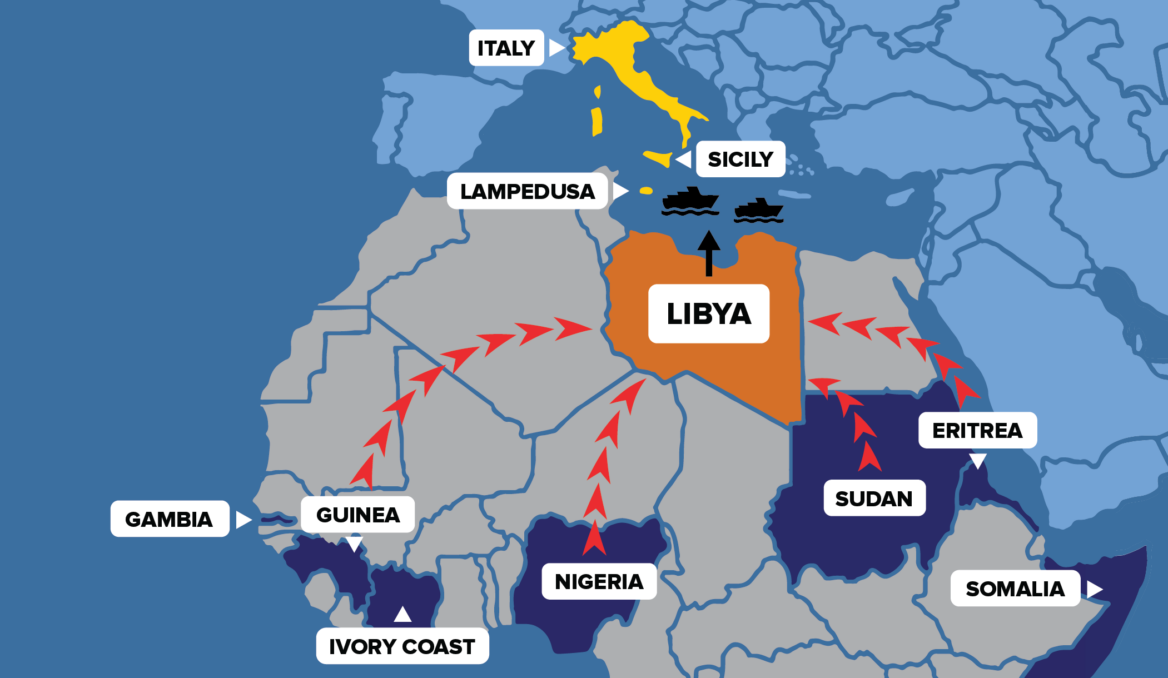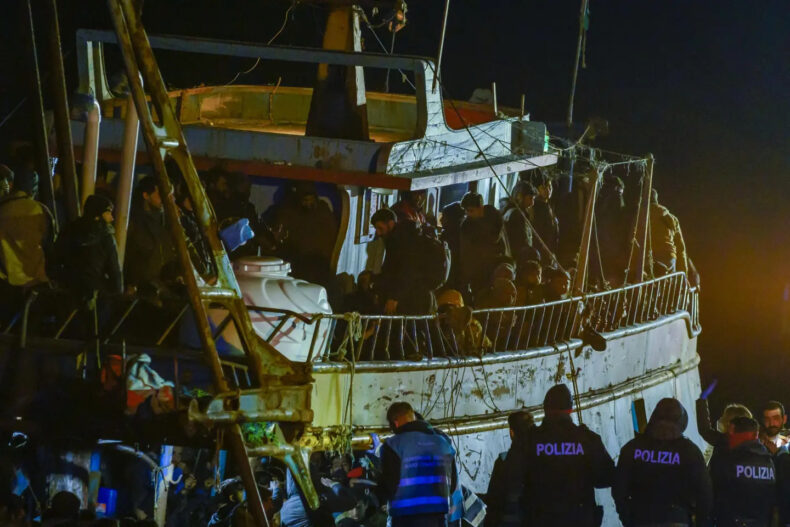A court in eastern Libya has delivered verdicts in a significant human trafficking case, sentencing 38 individuals for their involvement in a Mediterranean smuggling operation. The defendants, part of a network responsible for smuggling migrants and refugees from Libya to Europe, were held accountable for the deaths of 11 individuals attempting the perilous crossing.
The court’s ruling adds to the ongoing efforts in Libya to combat human trafficking and provides a glimpse into the challenges faced in addressing this issue. The verdicts underscore the importance of international cooperation in tackling the root causes of irregular migration and protecting the rights of vulnerable individuals coupled with stability in the region.
Varying Sentences Reflect Involvement in Libyan Mediterranean Smuggling
The court in the city of Bayda sentenced five individuals to life imprisonment for their role in the human trafficking operation. The convictions were based on their direct involvement in the smuggling attempt that led to the tragic deaths of 11 migrants and refugees. In addition to the life sentences, the court handed down 15-year prison terms to nine defendants who were found guilty of participating in the smuggling operation. While these individuals did not bear direct responsibility for the deaths, they were actively involved in facilitating the illegal migration attempt.

The court also sentenced 24 suspects to one year in jail, highlighting their complicity in the smuggling network. Although these individuals did not have direct involvement in the fatal incident, they were implicated in other aspects of the illicit operation. This ruling highlights the severity with which such crimes are treated and serves as a deterrent to others involved in illicit human trafficking networks.
Libya’s Ongoing Battle Against Human Trafficking
These recent court rulings represent the latest efforts in Libya to target human trafficking networks. Another court in the capital, Tripoli, recently convicted and sentenced three individuals for their involvement in human trafficking. The consistent pursuit of justice against traffickers demonstrates the determination of Libyan authorities to combat this heinous crime and protect vulnerable individuals from exploitation. Accordingly, the far-right government in Italy’s anti-migration policy falls in line with such sentences.
The Renewal of the Italy-Libya Deal
The Mediterranean smuggling case highlights the urgent need for effective measures to tackle irregular migration. The renewal of the Memorandum of Understanding (MoU) between Italy and the UN-recognized Libyan Government of National Accord (GNA) has come under scrutiny. The agreement, signed in 2017, focuses on countering illegal migration and human trafficking, as well as strengthening border security. Critics argue that the deal should be revoked due to widespread corruption, human rights abuses, and complicity at various levels of Libyan institutions.

However such a Libyan stance comes with its own rewards with Italy lifting a ban from its airspace & enhanced relations with Italy. On January 28, 2024, Italian Prime Minister Meloni made a visit to Libya where she signed a significant gas deal with the country. During her visit, she announced, “Italy will provide the Libyan Coast Guard with five ‘fully equipped boats’.”
Calls for Revocation and Improved Approach
Several Italian and international organizations have called for the immediate revocation of the Italy-Libya deal. They emphasize the dire conditions faced by migrants in detention centers controlled by armed groups, where human rights violations are prevalent. These organizations advocate for effective search-and-rescue efforts in the central Mediterranean and the prevention of hindrances to the work of NGOs.
According to a June 2022 report by the UN Independent Fact-Finding Mission on Libya, migrants in those detention centers endured appalling conditions, including “murder, enforced disappearance, torture, enslavement, sexual violence, rape, and other inhumane acts … in connection with their arbitrary detention.”
The recent court ruling in the Mediterranean smuggling case in Libya highlights the country’s commitment to combating human trafficking. The severe sentences handed down to the defendants demonstrate the gravity with which such crimes are treated.
However, the ongoing challenges in Libya, including corruption and human rights abuses, necessitate a comprehensive approach. International cooperation, including efforts to address the root causes of irregular migration and protect vulnerable individuals, remains crucial in ensuring a safer and more humane future for those affected by human trafficking.













